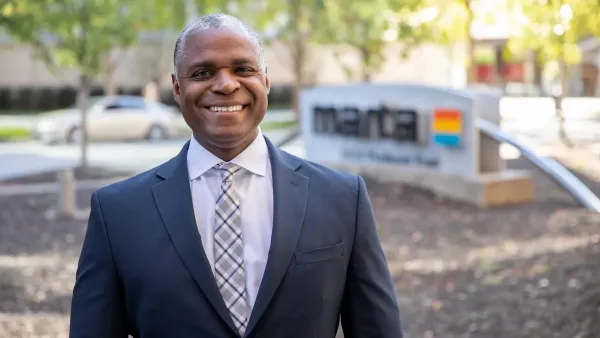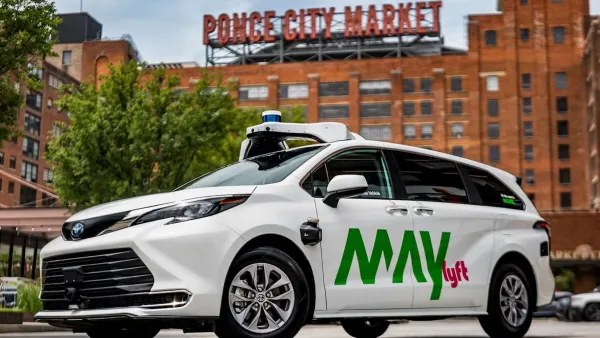Atlanta is planning to focus on night-shift workers, part of a growing consciousness around night mayors’ responsibility to everyone who shares the night, whether that’s workers, people who are homeless or leisure seekers.

In a span of three months, four people on e-scooters were killed by a vehicle — all but one at night. That’s when Atlanta took action. The mayor enacted a nighttime ban on e-scooters that shut off the devices every day from 9 p.m. to 4 a.m.
Atlanta councilmember Amir Farokhi recalls the upset response he received when the ban was announced in 2019, reports Adina Solomon.
“I got a bunch of emails from people who work at night and got off at like 11, 12 o’clock, saying, ‘Hey, I was using the scooter to get home or to get to the train station. Now I can’t use it anymore,’” he says.
Two years later, the ban is still in place and a micro-mobility option is denied to anyone out after 9 p.m. It’s clear to Farokhi now: This is the kind of situation that calls for a night mayor, a city official who oversees activities and addresses issues that happen overnight. He proposed the idea of Atlanta hiring a night mayor. In October, this got a step closer to realization when the city council approved a feasibility study looking at the prospect.
Since the first night mayor was elected in Amsterdam in 2012, more cities around the world have created the position too. This is especially true in Europe and the U.S. Oftentimes, night mayors concentrate on nightlife and entertainment. But in addition to those elements, Atlanta is planning to focus on night-shift workers.
It’s part of a growing consciousness around night mayors’ responsibility to everyone who shares the night, whether that’s workers, people who are homeless or leisure seekers.
“There’s a much broader spectrum of stuff that happens at night in a city,” Farokhi says. “In a really vibrant city, there’s a fully-fledged nighttime economy, which frankly doesn’t get the same attention that the daytime economy gets.”
FULL STORY: Atlanta’s Night Mayor Will Govern More Than Parties

Planetizen Federal Action Tracker
A weekly monitor of how Trump’s orders and actions are impacting planners and planning in America.

Chicago’s Ghost Rails
Just beneath the surface of the modern city lie the remnants of its expansive early 20th-century streetcar system.

Amtrak Cutting Jobs, Funding to High-Speed Rail
The agency plans to cut 10 percent of its workforce and has confirmed it will not fund new high-speed rail projects.

Ohio Forces Data Centers to Prepay for Power
Utilities are calling on states to hold data center operators responsible for new energy demands to prevent leaving consumers on the hook for their bills.

MARTA CEO Steps Down Amid Citizenship Concerns
MARTA’s board announced Thursday that its chief, who is from Canada, is resigning due to questions about his immigration status.

Silicon Valley ‘Bike Superhighway’ Awarded $14M State Grant
A Caltrans grant brings the 10-mile Central Bikeway project connecting Santa Clara and East San Jose closer to fruition.
Urban Design for Planners 1: Software Tools
This six-course series explores essential urban design concepts using open source software and equips planners with the tools they need to participate fully in the urban design process.
Planning for Universal Design
Learn the tools for implementing Universal Design in planning regulations.
Caltrans
City of Fort Worth
Mpact (founded as Rail~Volution)
City of Camden Redevelopment Agency
City of Astoria
City of Portland
City of Laramie





























